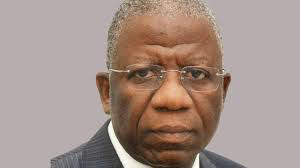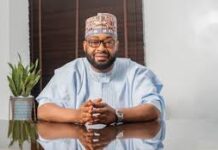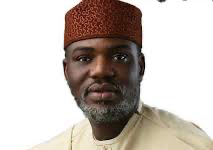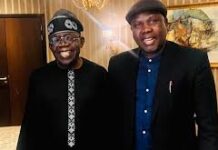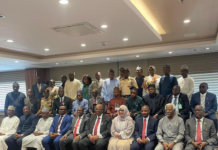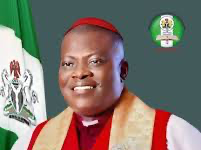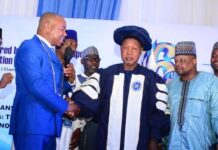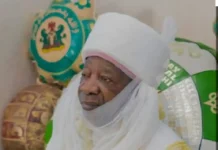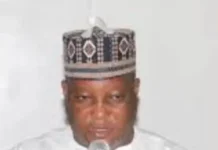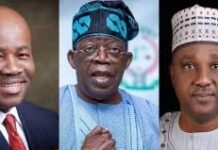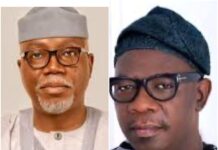On the Oronsaye Report and Merger of National Assembly
By Muhammad Kudu Ibrahim
POLITICS DIGEST – I have just read snippets from the purported recommendations from the Orasanye Report with emphasis on the proposed mergers of some Federal Government agencies and institutions with bewilderment, in the context of the declared strategic goals for which the Committee was established.
Without prejudice to the impeccable qualities of Mr. Orasanye, who is widely held in very high esteem, I feel there were some major omissions on the list I saw except if the institutions were deliberately excluded from the scope of the exercise.
If improving the cost of governance was the cardinal goal, the mergers should have included the House of Representatives and the Senate; as well as that of the National Assembly Service Commission with the National Civil Service Commission using the same rational applied to some of the agencies.
At this stage of our Economic Development, we hardly require the expensive bicameral legislature we ‘borrowed’ hook, line and sinker from the Americans who can afford it with maximum ease.
A single House of Representatives to reflect and unders the critical and requisite distinction between autocracy and democracy would suffice.
And to make things even better to free up vital funds required for the development of key sectors of the economy; the single chamber could be made part-time, if the ultimate goal of the exercise was to enhance the efficiency and prudence of governance at the center.
But there is also a nuclear option if we dare to dream.
We can decide to jettison the presidential system altogether in favour of the parliamentary system under which history suggests Nigerians experienced their most responsible governance system since our independence.
But that will take unprecedented political will Nigerian leaders and politicians seem to lack in their DNA.
Still, these measures will save the nation more than 80 billion Naira annually! The FGN presently expends approximately 128 billion Naira annually for the “undersight” of MDAs but we all know what subsequently occurs in their opaque relationship.
Add all these to their recourse to the so-called “Constituency Projects” which is unknown to even the American originators of the Presidential system of governance we copied, then it becomes obvious that the Orasanye report requires a second look.
The existing system only serves to satiate the greed of our lawmakers with the vital oversight functions left undone.
That amounts to triple jeopardy for nation in my opinion.
In the first instance, the nation expends a King’s ransom to maintain less than three thousand Nigerians who subsequently abuse their positions by refusing to perform their duties to align with the collective aspirations of Nigerians.
Secondly, the unholy relationships between the MDAs and the lawmakers erodes their capacity for optimal performance for obvious reasons.
In the final instance, the inefficient performance of the NASS in its existing format derives Nigerians from benefiting from the much expected dividends of democracy experienced in other climes.
Unless, we have forgotten, the often touted benefit of democratic governance is accountability.
Can we in all honesty, concluded that we have had accountable leadership at all levels of governance since the return of democracy in 1999?
Read Also:
And which vital arm of government in the tripod is constitutionally required to do the bidding of ‘the people’ in upholding accountability and transparency in governance?
I have just read snippets from the purported recommendations from the Orasanye Report with emphasis on the proposed mergers of some Federal Government agencies and institutions with bewilderment, in the context of the declared strategic goals for which the Committee was established.
Without prejudice to the impeccable qualities of Mr. Orasanye, who is widely held in very high esteem, I feel there were some major omissions on the list I saw except if the institutions were deliberately excluded from the scope of the exercise.
If improving the cost of governance was the cardinal goal, the mergers should have included the House of Representatives and the Senate; as well as that of the National Assembly Service Commission with the National Civil Service Commission using the same rational applied to some of the agencies.
At this stage of our Economic Development, we hardly require the expensive bicameral legislature we ‘borrowed’ hook, line and sinker from the Americans who can afford it with maximum ease.
A single House of Representatives to reflect and unders the critical and requisite distinction between autocracy and democracy would suffice.
And to make things even better to free up vital funds required for the development of key sectors of the economy; the single chamber could be made part-time, if the ultimate goal of the exercise was to enhance the efficiency and prudence of governance at the center.
But there is also a nuclear option if we dare to dream.
We can decide to jettison the presidential system altogether in favour of the parliamentary system under which history suggests Nigerians experienced their most responsible governance system since our independence.
But that will take unprecedented political will Nigerian leaders and politicians seem to lack in their DNA.
Still, these measures will save the nation more than 80 billion Naira annually! The FGN presently expends approximately 128 billion Naira annually for the “undersight” of MDAs but we all know what subsequently occurs in their opaque relationship.
Add all these to their recourse to the so-called “Constituency Projects” which is unknown to even the American originators of the Presidential system of governance we copied, then it becomes obvious that the Orasanye report requires a second look.
The existing system only serves to satiate the greed of our lawmakers with the vital oversight functions left undone.
That amounts to triple jeopardy for nation in my opinion.
In the first instance, the nation expends a King’s ransom to maintain less than three thousand Nigerians who subsequently abuse their positions by refusing to perform their duties to align with the collective aspirations of Nigerians.
Secondly, the unholy relationships between the MDAs and the lawmakers erodes their capacity for optimal performance for obvious reasons.
In the final instance, the inefficient performance of the NASS in its existing format derives Nigerians from benefiting from the much expected dividends of democracy experienced in other climes.
Unless, we have forgotten, the often touted benefit of democratic governance is accountability.
Can we in all honesty, concluded that we have had accountable leadership at all levels of governance since the return of democracy in 1999?
And which vital arm of government in the tripod is constitutionally required to do the bidding of ‘the people’ in upholding accountability and transparency in governance?
Muhammad Kudu Ibrahim

